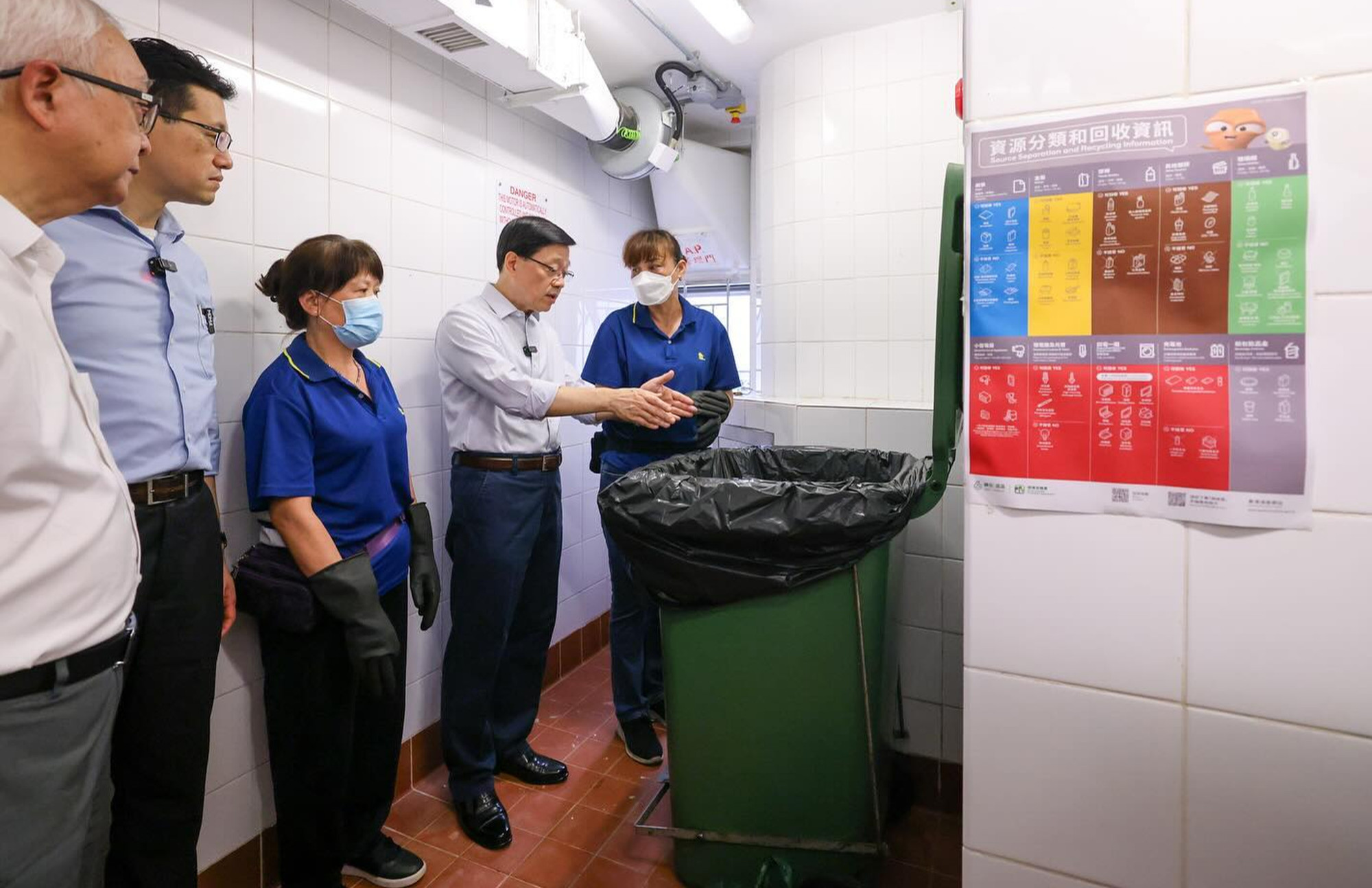The decision was made, Cheuk said, after various surveys revealed the public had huge reservations, pointing to limited coverage of recycling facilities.
Lau said: “I think the incident will dent the government’s authority a little bit. But I do not think it will be too severe since the scheme has not yet been implemented.
“The government might gain some points because of its willingness to change course amid public opposition.”
Lau, a consultant for semi-official Beijing think tank the Chinese Association of Hong Kong and Macau Studies, also said the central government would probably advise Lee to tread carefully even on seemingly “trivial” practical issues to prevent them from morphing into big political trouble.
Chan Wai-keung, a political scientist from the Hong Kong Community College of Polytechnic University, said shelving the scheme seemed to be the wisest and most politically cost-effective way to handle the issue.
“It is not going to hurt John Lee’s governance or authority much. He does not own the policy, so to speak, but only inherited it from the previous administration,” Chan said.
He said he also believed the government had planned to drop the scheme much earlier, pointing to a newspaper article penned by pro-Beijing heavyweight Lo Man-tuen last month. Lo called for the scheme to be scrapped, saying it had been raised by the “radical opposition camp” back in 2005.
But Chan stressed the saga showed an “execution gap” among officials.
“Action is the key to all success,” Chan said. “Having smart minds to come up with good ideas or policies is not enough. If we cannot put them into action to achieve tangible results, they are just nothing.”
He cited several practical measures in recent years that ended up degenerating into a fiasco.

Last month, the examination authorities were forced to give up using an app they had developed at a cost of HK$9 million to check attendance records of candidates sitting university entrance exams after being hit by a series of glitches.
Authorities were forced to push back implementation of new electronic tunnel toll payments at the eleventh hour last year after criticism from the public on the rushed launch and red tape in processing motorists’ applications for special sensor tags.
Chan also accused officials of a lack of skill in explaining policies.
“Officials seem to rattle off comments without an ounce of thought behind them, with no concept of how their comments may be perceived,” Chan said.
He pointed to Theresa Wu King-yan, an assistant director for the Environmental Protection Department, who caused a public-relations nightmare in January after suggesting people “saw” a broomstick into two pieces so it would fit in the designated rubbish bags because HK$11 – the price of a waste disposal sticker for large items – seemed a bit much to pay.
Environment minister Tse Chin-wan later explained the mop handle could be recycled.
Chan said: “It also showed that such a senior official in charge of the scheme was also confused as to why the government rolled out the policy. It is not about money. It is about reducing and recycling waste.”
Director of the department Samuel Chui Ho-kwong also stepped into controversy over his remarks that were perceived as blaming people for refusing to cooperate.
He said if residents were willing to learn about the policy they would figure their way out of the confusion. “If you want to make it clear, you will. If you don’t then nothing will help,” Chui said in January.
Chan said officials did not seem to have the ability to use the right words to avoid misinterpretation.
After admitting the public remained confused about the details, authorities moved the citywide start date to August 1.
The scheme earlier also caused concerns among care homes for the elderly, patient advocacy groups and the restaurant industry over a possible rise in costs.
Dr Yau Wing-kwong, chief executive of the Environmental Association green group, agreed it was politically unwise to push ahead with the scheme as scheduled.
“If you cause a mess after pressing ahead, it can cause more harm than good politically,” he said.
Chinese University of Hong Kong political scientist Dr Hung Wing-lok, however, said he believed the abrupt scrapping of the scheme could cost the government politically because some people might think it had not planned well enough beforehand.
“It is obvious that they need more channels to listen to real voices from the bottom in the future,” Hung said.

Post a Comment